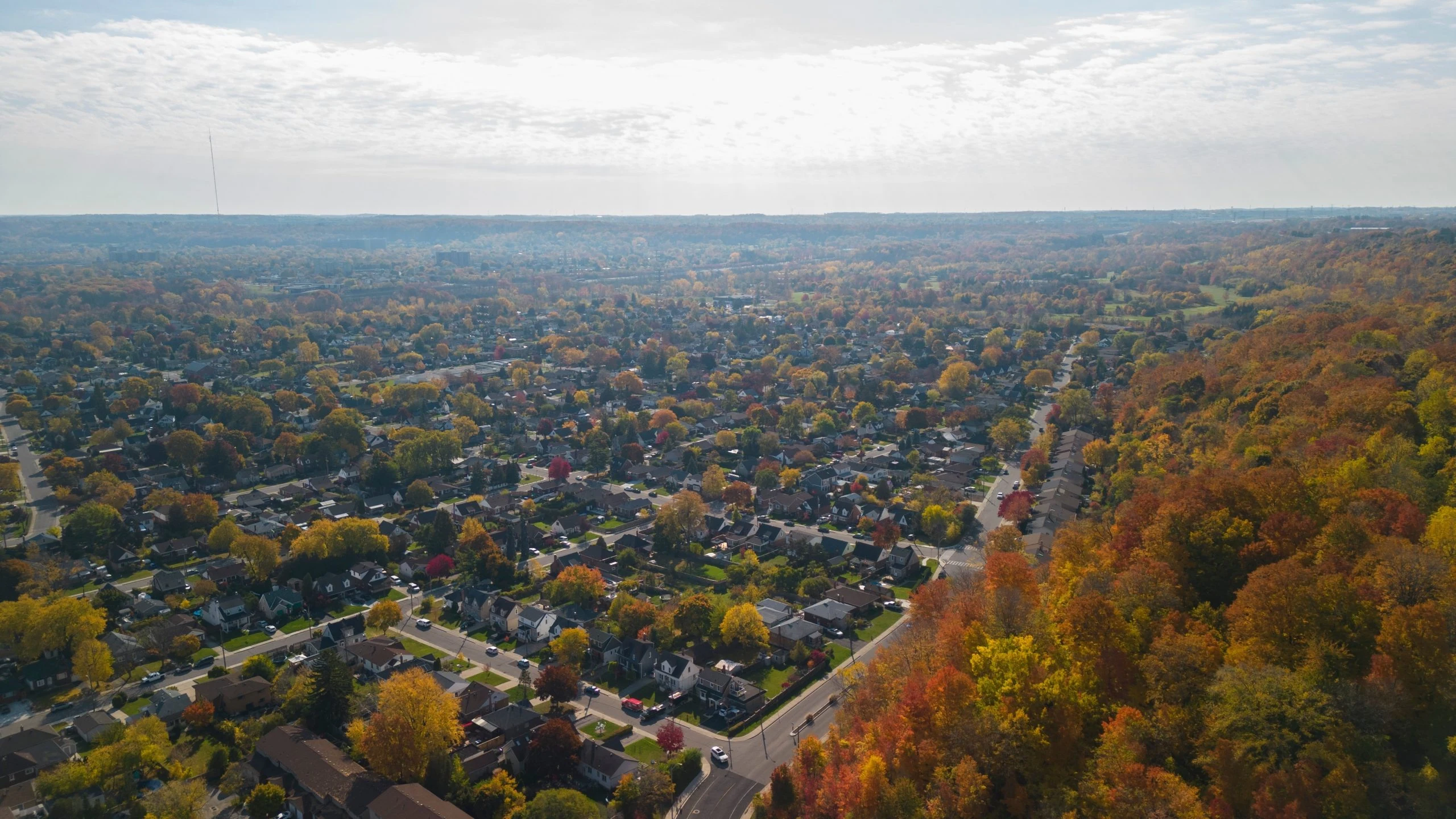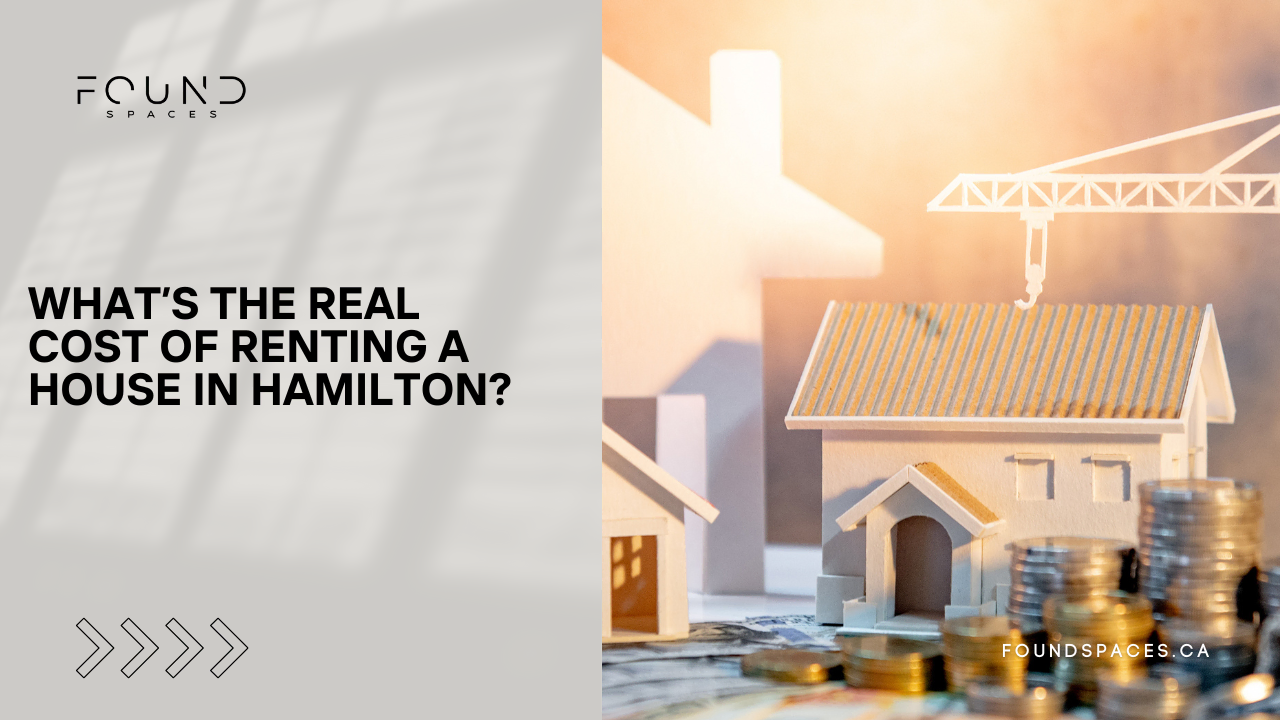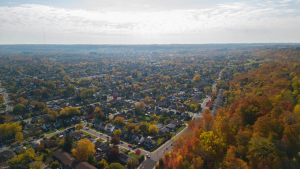Renting a house in Hamilton can seem very appealing, especially when you compare it to the higher costs in the Greater Toronto Area. At first glance, Hamilton houses to rent often come with a lower price tag, giving you hope for more space without breaking the bank. However, before you get too excited, remember that the monthly rent is just one piece of the puzzle.
There are a bunch of other expenses that can creep up on you. By understanding all the costs involved, from utilities to parking and maintenance, you’ll be better prepared to budget wisely and avoid surprises. In this guide, we’ll break down the typical expenses of renting a house in Hamilton, see how it stacks up against Toronto, and share tips to help you save money while enjoying your new home.
Quick Snapshot of Typical Monthly Costs

Renting a house in Hamilton involves several monthly expenses beyond just paying the landlord. Here’s a quick snapshot of what you might expect to pay each month for a typical 2–3-bedroom house in Hamilton:
| Expense Category | Typical Monthly Cost (2–3 Bedroom House) |
| Base Rent | $1,600 – $2,200 |
| Hydro (Electricity) | $80 – $120 |
| Gas/Heat | $70 – $100 |
| Water/Wastewater | $60 – $80 |
| Internet (60 Mbps) | ~$70 |
| Parking (Driveway/Permit) | $0 – $100 |
| Yard & Snow Maintenance | $75 – $150 (DIY or contractor) |
| Tenant Insurance | $20 – $50 (basic coverage) |
| Hot Water Tank Rental | ~$25 (if applicable) |
As you can see, the base rent for a house in Hamilton might be around $1,800 on average, but utilities can add roughly $250–$300 more each month. For example, electricity could be about $100, heating gas maybe another $80, water around $70, and internet service roughly $70. Parking might be free if your rental includes a driveway or garage space, but if you need a city street parking permit, that could be up to $100 extra per year or season.
Don’t forget other potential costs: if you’re responsible for yard work or snow removal, budget in equipment or contractor fees; tenant insurance to protect your belongings (often $20–$30 a month for a basic policy); and if your rental uses a rented hot water tank, that’s an extra ~$25 monthly. All told, the total monthly cost for renting a house in Hamilton might range roughly from $2,000 up to $2,400 (rent + all extras), so it’s vital to budget accordingly.
Hamilton vs. GTA, Value at a Glance
One reason Hamilton is attracting renters is the clear cost advantage over Toronto and the broader GTA. On average, renting a house in Hamilton costs around $1,800 per month, whereas a comparable house in the GTA could set you back closer to $2,800 per month. That’s a huge difference and a big relief for your wallet! This gap means you might save around $1,000 each month on rent alone by choosing Hamilton.
There are other perks too. In Hamilton, rental houses often come with parking included (like a driveway or garage space), whereas in Toronto it’s common to pay extra for parking. Tenants in the GTA might have to shell out anywhere from $150 to $300 per month for a parking spot in busy areas, which is a cost many Hamilton renters can avoid.
Utilities tend to be somewhat lower in Hamilton as well. An average Hamilton house might have about $250–$300 in monthly utility costs (electricity, heating, water, etc.), whereas larger or older homes in the GTA, or higher utility rates, can push monthly utilities to $400 or more. Every bit counts, and these savings on utilities can make a noticeable difference over the year.
Beyond dollars and cents, quality of life factors come into play. Hamilton offers abundant outdoor spaces like parks and trails, and generally a quieter lifestyle, which many families and professionals appreciate. Commuting within Hamilton or to local jobs tends to be easier and shorter than the often grueling commutes in Toronto. (If you do work in Toronto, Hamilton’s GO Transit and highways provide options, but many find they can work locally and skip the long drive or train ride.) All these factors mean that choosing Hamilton can give you better value for your rent money; you’re not just saving cash, you may also get more space and a more relaxed day-to-day life compared to living in the GTA.
The Real Costs, Explained
Renting a house in Hamilton involves more than just a monthly rent payment. While a 2-3 bedroom house averages around $1,800, additional expenses can add up. Typically, tenants are responsible for utilities like electricity, heating, and water, which can average about $290 per month. It’s wise to request a 12-month utility history from landlords to get a clearer picture of what you might expect.
Parking can also be a factor; many homes offer driveway parking at no extra cost, but street permits can range from $0 to $100 depending on the area. Don’t forget about yard maintenance and snow removal, responsibilities that can significantly impact your budget. Some landlords may include these services, while others may expect tenants to handle them or hire help, costing anywhere from $75 to $150 monthly.
Moreover, while landlords typically cover property taxes, these costs can influence rental prices. Look out for leases that might include bill-backs for utilities or other charges, as these can catch renters off guard. Lastly, tenant insurance is advisable, usually costing around $40 to $100 monthly, providing peace of mind for your personal belongings. All these factors combined will give you a more accurate picture of the total cost of renting in Hamilton.
Utilities
In most house rentals, tenants are responsible for all the utilities. This means you’ll be paying for electricity, gas or heating fuel, water and wastewater, and often your own internet/TV service. Collectively, these can be around $250–$300 per month on average.
It’s a smart move to ask the landlord for the past 12 months of utility bills or an average figure; this way you won’t be blindsided by a $300 heating bill in January. Hamilton winters can get cold, and heating a whole house (especially an older one with less insulation) can be pricey in mid-winter, whereas in summer your electricity might spike if you use air conditioning. Understanding the seasonal swings in utility costs will help you plan.
Parking
Check what the deal is with parking at the house. Many Hamilton houses have a private driveway or garage, meaning you can park for free and even have space for a second car in many cases. If the house is in a downtown area or a neighborhood with limited driveway space, you might need to rely on street parking permits.
The good news is Hamilton’s street permit fees are not too bad: often ranging from $0 (some areas have free street parking) up to maybe $100 for an annual permit or a few dozen dollars seasonally. It’s nothing like Toronto, where lack of parking and high permit costs can be a headache. Still, double-check so you’re not caught needing to scramble for a parking spot.
Yard Maintenance & Snow Removal

Renting a house comes with something you’d never worry about in a condo or apartment, the yard! Especially in Hamilton’s family-friendly neighborhoods, you might have a front lawn, a backyard, maybe even trees and flowerbeds. Most lease agreements for houses will specify who is responsible for yard upkeep and snow shoveling. Often, tenants are expected to handle this themselves. This means mowing the lawn in summer, raking leaves in fall, and shoveling snow from the driveway and sidewalk in winter.
These tasks take time and possibly money, for equipment or hiring help. If you’re not up for DIY yard work, you might hire a local student or a service. Budget $75 to $150 a month if you plan to outsource mowing and snow clearing.
On the other hand, if you love a bit of outdoor work, you can save money. Maybe ask if the landlord can provide basic tools like a lawnmower or snow shovel as part of the rental. Some landlords, particularly if they live nearby or if it’s a multi-unit property, might include yard and snow maintenance in the rent. Always clarify this upfront so you know whether you need to stock up on lawn care tools or snow salt.
Property Taxes & Bill-Backs
In Ontario, landlords pay property taxes to the city for the home you’re renting, and those taxes can be substantial in Hamilton. While you as a tenant don’t directly pay property tax, it’s indirectly factored into your rent.
Occasionally, some landlords will try a system called “bill-backs” for certain expenses. For instance, they might cover a utility bill and then bill you back for a portion or all of it if your lease says so. Or they might rent the hot water heater and pass that cost to you.
Review your lease carefully: see which utilities or services are included in the rent and which are extra. If anything is a shared cost (like you occupy the main floor and another tenant is in a basement unit sharing the same meter), the lease should spell out how the bills are divided. Understanding this prevents nasty surprises like getting a portion of the property’s tax or a surprise utility invoice added on top of rent.
Tenant Insurance
One often overlooked cost is tenant insurance. While it’s not legally required in Ontario, many landlords strongly recommend it or even require it in the lease. Tenant insurance is relatively affordable: typically around $20 to $30 a month for a basic plan in Hamilton. This insurance protects your personal belongings (imagine if there’s a fire or burglary – your furniture, electronics, clothes could be covered).
It also includes liability coverage, meaning if someone gets hurt accidentally in your rented home (say a guest slips on your wet floor) or if you accidentally cause damage (like you leave the stove on and start a kitchen fire that damages the house), the insurance can cover those costs. It’s peace of mind for a relatively low cost. Be sure to ask what a policy covers, and shop around or use online quote tools; often you can bundle tenant insurance with your car insurance for a discount. High-value items (like expensive jewelry or musical instruments) might need extra coverage. All in all, tenant insurance is a wise idea and some landlords will ask for proof of it on or before move-in day.
Rent: House vs. Apartment in Hamilton

Renting a house in Hamilton usually means more space; extra bedrooms, maybe a basement, and often a backyard. For around $1,800 a month, you could rent a modest 2–3 bedroom house. By comparison, a one-bedroom apartment downtown averages $1,300–$1,500, while a newer two-bedroom in a building with amenities can reach $1,800 or more.
On a price-per-square-foot basis, houses often feel like a better deal, especially for families or anyone who values privacy and outdoor space. The trade-off is responsibility: in an apartment, utilities may be included, and building staff handle maintenance, snow removal, and repairs. With a house, you’ll likely cover all utilities and may need to manage small fixes yourself.
Apartments also offer perks like gyms, security, or elevators, which houses don’t. But a house provides freedom, fewer shared walls, and the chance to enjoy your own yard. Ultimately, the choice comes down to lifestyle; convenience and amenities versus space and independence.
How to Keep Costs Down
Renting a house comes with lots of expenses, but there are definitely ways to save money and keep costs down. Here are some practical tips to get the most bang for your buck:
- Request Utility Histories: Before you sign a lease, ask the landlord for past utility bills or an average monthly cost for utilities. Knowing that the heating bill averages $150 in winter, for example, lets you plan ahead or possibly negotiate if a house has very high utilities due to old windows or poor insulation.
- Look for Included Utilities: Some rental listings might include one or two utilities in the rent. If you find a place where a big utility cost is included, that can simplify your budgeting. Just be sure the rent isn’t hiked up excessively to offset that.
- Improve Energy Efficiency: Once you move in, manage your utility usage. Simple habits like turning off lights when not in use, using LED bulbs, and keeping the thermostat reasonable can shave dollars off your bills. If the house has an older thermostat, consider asking the landlord if you can install a programmable one to optimize heating/cooling times. Also, check window seals and use curtains to your advantage (open for sun warmth in winter, closed to block heat in summer).
- Bundle and Shop for Internet/Cable: Internet service often has promo deals. Compare providers in Hamilton. Sometimes you can negotiate a better rate or get a bundled package with TV if you need it. Just be careful with the contract terms; if you might move after a year, a no-contract or 1-year deal might be better than a 2-year lock-in.
- Clarify Maintenance Responsibilities: We touched on yard and snow: knowing if you’re responsible helps you plan if you need to buy a lawnmower or if you can borrow one. If the house has things like a pool or something extra, definitely clarify who maintains it (most likely not relevant unless you rent a very high-end home). The more you know, the less likely you’ll face unexpected costs like having to suddenly buy a hose and sprinkler for a garden.
- Avoid Hidden Fees: Ask explicitly, “Are there any other fees I should know about?” Sometimes there might be things like an air conditioning unit rental or furnace maintenance plan that the landlord expects you to cover. It’s not common, but better to ask. If the house is a condo or part of an HOA (rare, but say a townhouse in a condo complex), check if there are any condo rules or fees affecting you.
- Negotiate Where Possible: If you have a good credit score, stable income, or a previous landlord reference, you have some negotiating power. In a softer rental market, you might negotiate the rent a bit lower, or ask for an inclusion (e.g., “Will you include the water bill in rent if I sign a two-year lease?”). The worst they can say is no. Even asking for a small thing like the landlord to repaint a room or steam-clean the carpets before move-in can save you doing it later.
- Opt for Energy-Efficient Homes: When house hunting, pay attention to things like windows (are they newer double-pane windows or old single-pane?), furnace (a newer high-efficiency furnace vs. a 25-year-old clunker), and insulation (finished basements and attics are usually better insulated). A well-insulated home with efficient appliances can save a ton on utilities. You might even ask if the home has a smart thermostat or low-flow toilets – any updates like that suggest the owner cares about efficiency, which benefits you.
- Consider Roommates or Family Sharing: If the house is larger than you need, maybe you can team up with a friend or another couple to share the space. Splitting rent and utilities two ways (or more) is one of the biggest cost savers. Just make sure everyone is properly on the lease and you have a good understanding among roommates to avoid issues later.
- Plan for the Long Term: If you intend to stay put for a while, see if the landlord would be open to a longer lease (like 18 months or 2 years) at the same rate. This can sometimes protect you from rent increases in the second year. Plus, it saves the landlord the hassle of finding new tenants, which can be a selling point for them.
Renting Smarter in Hamilton

Renting a house in Hamilton offers more space and affordability compared to many parts of the GTA. But as Found Spaces stresses, true savings come from understanding the total cost of living. That means factoring in utilities, insurance, and maintenance, not just rent.
Hamilton has something for everyone: young professionals seeking convenience, families needing more space, and students looking for budget-friendly housing. Found Spaces makes it easier to find the right rental by keeping track of local neighborhoods, lease terms, and hidden costs.
Ready to rent smarter in Hamilton? Start your search with Found Spaces today and find a home that truly fits your lifestyle and budget.

Frequently Asked Questions
What should I consider before renting a house in Hamilton?
Think about the location, nearby schools, parks, and public transport. You’ll also want to consider your daily commute and the local community.
How long does the rental process usually take in Hamilton?
The rental process can vary, but generally, it takes a few weeks. You’ll need to find a place, fill out an application, and go through any necessary inspections or approvals.
What are common rental requirements in Hamilton?
Landlords often ask for proof of income, a credit check, and a rental history. They may also want references to ensure you’re a reliable tenant.
Is it common to negotiate rental agreements in Hamilton?
Yes, it’s fairly normal to negotiate. Some landlords might be open to discussions on lease terms, move-in dates, or minor repairs.
What are the responsibilities of tenants in Hamilton?
As a tenant, you’re generally responsible for keeping the property clean, paying rent on time, and notifying the landlord about maintenance issues.




